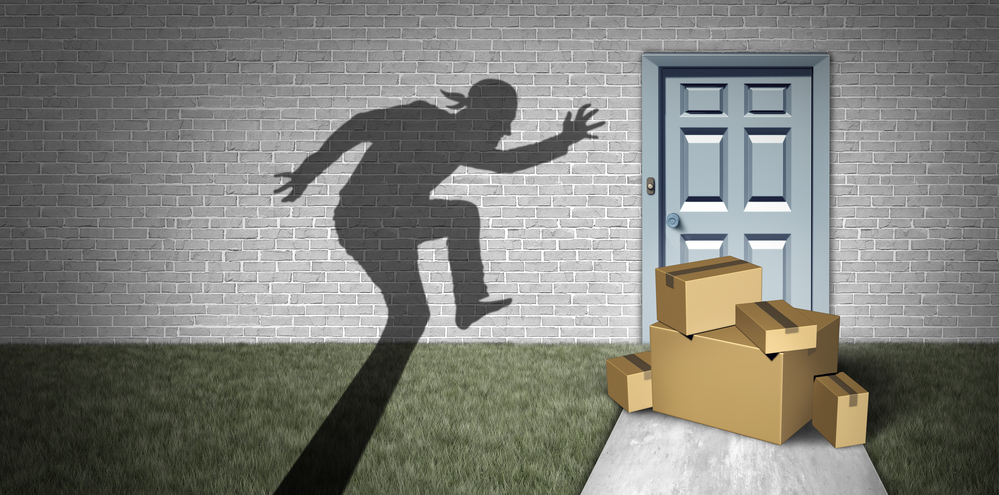
Years ago, I lived in a rather Podunk town in North Carolina. It had its charms, but one of my biggest gripes was that it took over an hour to drive to a decent bookstore. It was around this time I started ordering books online more often. But there was a problem. The area where I lived had no shortage of people willing to snatch unattended boxes away from people’s doorsteps. I had more than a few books swiped before I thought of a solution, with a little help from Gary Becker.

Like many Chicago school economists, Becker was keen to use economic modeling to analyze all kinds of behaviors. Among these are his economic analysis of the family and of discrimination, but he also worked out an economic analysis of criminal behavior. In short, he modeled crime as a form of rational economic behavior. People will engage in crime when the expected benefits outweigh the expected costs.
The expected cost was taken to be a combination of two factors – the likelihood of being caught, and the severity of punishment. The prospect of severe punishment could still lead to a low overall expected cost if one was near-certain they wouldn’t be caught. Similarly, a high likelihood of being caught might not provide much deterrence if the prospective punishment was trivial.
Unfortunately, I wasn’t well situated to alter either of these variables. There wasn’t much I could do to increase the likelihood of them being caught. The occasional book being swiped from someone’s doorstop was not a major issue, in the eyes of the local cops, so it’s not as though I could convince them to stake my place out whenever I was expecting a delivery. And even if someone was caught swiping a package from a doorstep, they would likely only face a legal slap on the wrist.
So, considering this, how did Becker’s work help me come up with an idea? I realized that even though I couldn’t do anything to increase the “expected cost” side of the ledger, I could do something to lower the “expected benefit” side. I just started ordering my books from Barnes and Noble instead of Amazon.
This was my reasoning. When Barnes and Noble shipped a book, the box it came in was prominently marked as from that store. Similarly, when Amazon shipped a book, it was sent in a distinctive Amazon package. But I went on a limb and assumed that the type of person who is willing to steal boxes from doorsteps is not likely to be the sort of person who is interested in books or reading. If they saw a box on my door that was clearly from Amazon, aka “the everything store”, that box could contain, well, just about anything. So it might seem worth swiping, just in case. But if they saw a box that was clearly from Barnes and Noble, which would almost certainly contain a book, I figured they wouldn’t bother to grab it. Even with a low expected cost of stealing, the benefit of gaining a book would be, to them, even lower.
And it worked! After I made that change, I never had another book taken from my doorstep again. There were times I ordered things other than books from Amazon, and occasionally those boxes would disappear. But my books were always left behind. I would that Becker earned his Nobel Prize for that alone – but to date Stockholm hasn’t returned my emails suggesting they amend his information and add this to his list of accomplishments.

READER COMMENTS
Jim Glass
Dec 25 2022 at 10:32am
Clever. Kudos.
David Henderson
Dec 25 2022 at 12:30pm
Great thinking, Kevin. Merry Christmas, assuming you celebrate it. If not, then have a great day.
David Seltzer
Dec 25 2022 at 12:45pm
Clever. A Marine working the problem.
Scott Sorensen
Dec 26 2022 at 9:29am
This is an elegant and practical use of economic theory. Gary Becker was my mother’s brother and he would appreciate the simplicity and demonstration of the purpose of economic analysis.
Andy Weintraub
Dec 26 2022 at 9:32pm
With all due respect and credit to Gary Becker, the necessary condition is the existence of a competitive market in the sale of on-line books.
Jon Murphy
Dec 27 2022 at 12:44pm
The competition helps the process, but I wouldn’t say it’s necessary for two reasons:
First: in Kevin’s case, he faced two margins he could adjust along: reducing the expected benefits of the bad guys and increasing their expected costs. He chose reducing expected benefits because, to him, that was the lower cost option. If there was no other competition in the market, Kevin’s analysis would still hold. He’d just have to find a way to increase the expected costs (and there are solutions out there: Amazon Locker, decoy packages, requesting Amazon to hold delivery, etc).
Second: Even if there is no competition, the Second Law of Demand kicks in and people victimized by porch pirates are incentivized to find subsititues. And Amazon is incentivized to produce solutions. What those solutions would be would vary (such as Amazon Locker above. Or perhaps decoy packaging).
Monopoly certainly increases subsitution costs, but the Beckerian point that bad guys face costs & benefits and that changing their incentives will change their behavior still holds in a monopoly as it does in a more competitive market.
MarkW
Dec 27 2022 at 5:49am
I thought I was going to read that you had posted a (truthful) sign on your porch notifying potential thieves of the unexciting contents of the expected delivery.
Carson Cikovic
Jan 9 2023 at 1:24pm
Hello, Kevin,
This article was beautiful. I used it for one of my high school projects. So I would like to personally thank you for writing this article.
Comments are closed.